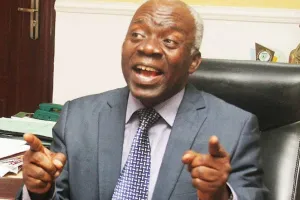The Speaker of the Nigerian House of Representatives, Abbas Tajudeen, has officially withdrawn the controversial Compulsory Voting Bill that sought to amend the Electoral Act 2022, following significant public backlash and criticism from legal experts.
The withdrawal was announced on Monday through a statement issued by the Speaker's Special Adviser on Media and Publicity, Musa Abdullahi Krishi, citing the need for "further dialogue" on the contentious legislation.
"Following extensive consultations with a broad spectrum of stakeholders, he has decided to withdraw the Bill to Amend the Electoral Act 2022 to make voting mandatory for all eligible Nigerians, which he co-sponsored with Hon. Daniel Adama Ago," the statement read.
The statement further explained that the withdrawal would "allow time for further dialogue on how best to cultivate a culture of voluntary participation that honours both our democratic ideals and the rights of our citizens."
The bill, which had already passed its second reading in the House of Representatives in mid-May, proposed making voting compulsory for all eligible Nigerian citizens. If enacted, it would have represented a significant shift in Nigeria's electoral process, potentially imposing penalties on citizens who fail to participate in elections.
The proposal faced strong opposition from various quarters, including prominent legal practitioners. Notable human rights activist and senior lawyer, Femi Falana, was among those who publicly criticized the bill, arguing that mandatory voting contradicts fundamental democratic principles of freedom of choice.
Critics of the bill maintained that while increasing voter participation is desirable, compelling citizens to vote through legal mandates could infringe on individual rights and potentially lead to uninformed voting or increased invalid ballots.
The withdrawal represents a significant policy reversal for the House leadership, which had initially championed the bill as a solution to Nigeria's historically low voter turnout rates. In recent elections, Nigeria has struggled with voter apathy, with turnout percentages often falling below 35% of registered voters.
Political analysts suggest that instead of mandatory voting, electoral reforms might better focus on addressing the root causes of voter apathy, including improving voter education, enhancing the credibility of electoral processes, and making voting more accessible.
The Speaker's decision to withdraw the bill demonstrates the impact of public discourse on legislative processes and highlights the ongoing debate about the best approaches to strengthen Nigeria's democratic institutions.













